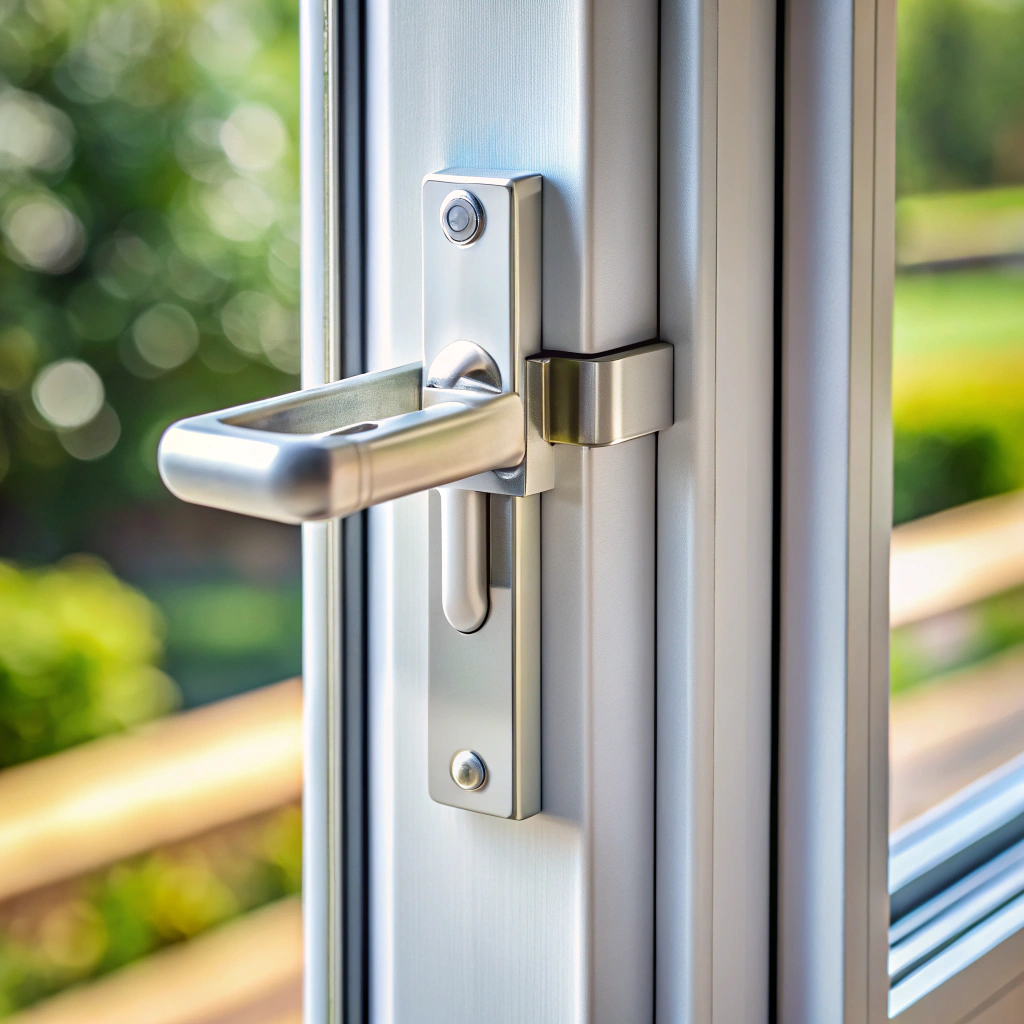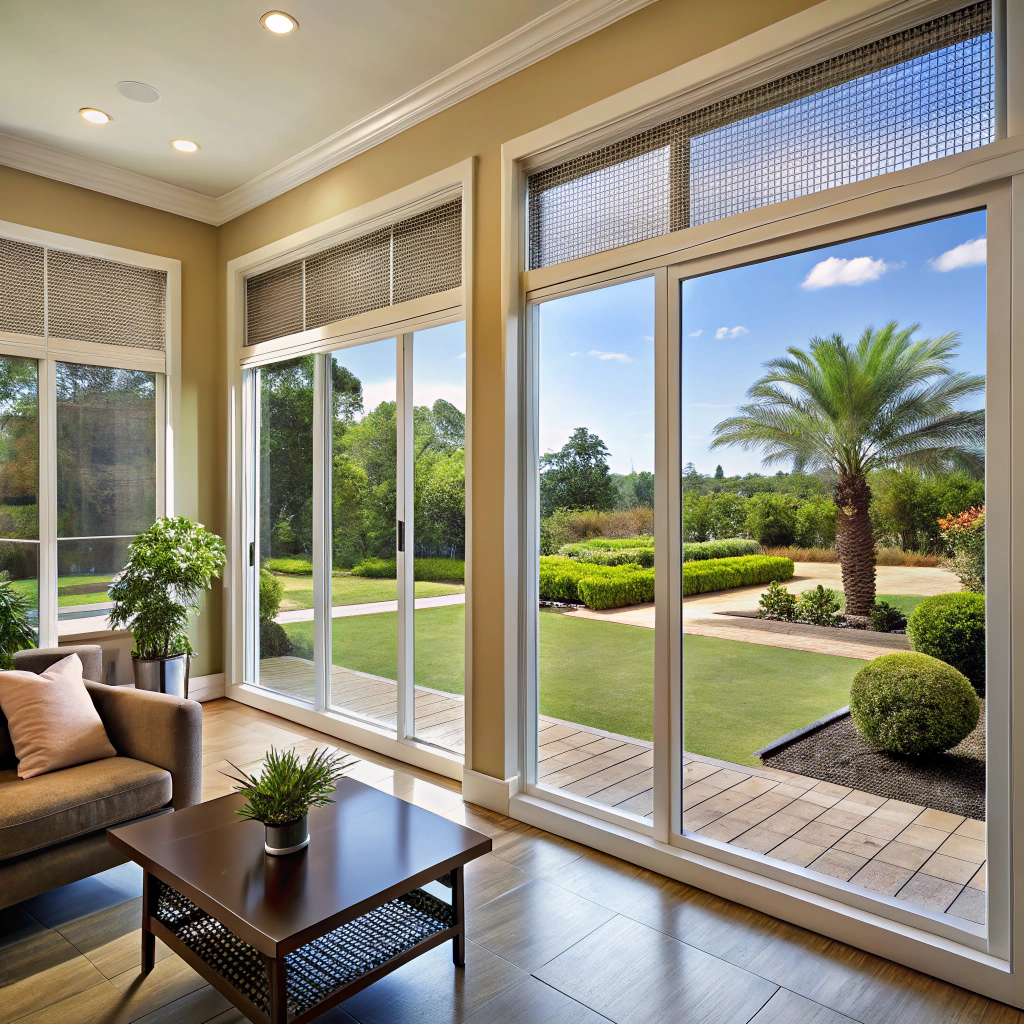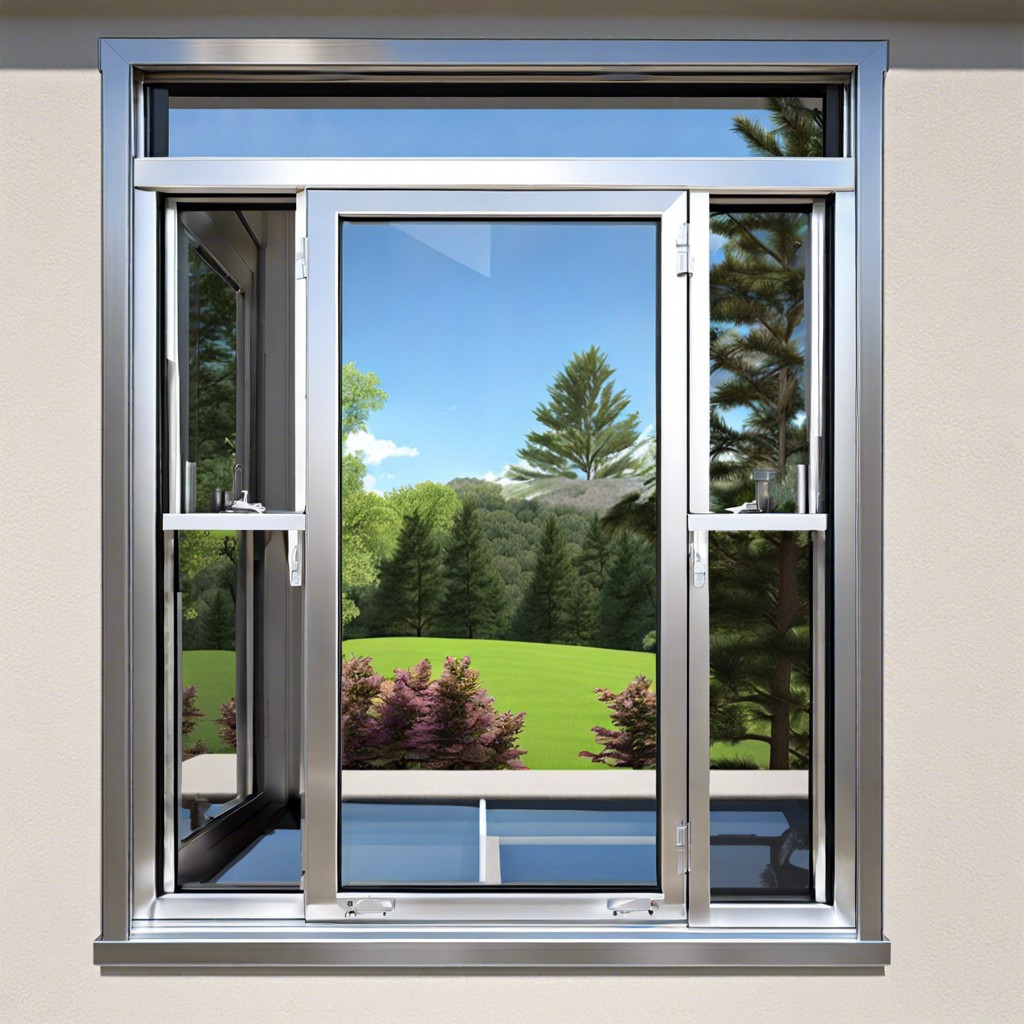Discover the fascinating reasons behind your feline friend’s captivating habit of gazing out the window, as we delve into their curious world.
As a window expert, I may not be able to explain why your cat knocks over your favorite vase or scratches up your couch, but I can definitely shed some light on one of their most curious behaviors – staring out the window. If you’re a cat owner, you’ve probably noticed that your furry feline spends hours gazing out of the window.
But have you ever wondered why? Is it just boredom or is there something more to this behavior? In this blog post, we’ll explore the reasons behind why cats love looking out windows and what it means for their well-being. So if you’re ready to get a glimpse into your cat’s mind and understand their fascination with windows, keep reading!
Key takeaways:
- Cats are naturally curious and love to observe the world.
- Looking out the window satisfies their hunting instincts and provides mental stimulation.
- Indoor cats may spend more time gazing out the window than outdoor cats.
- Cats are fascinated by birds, wildlife, and other animals they see outside.
- Window watching reduces boredom and provides environmental enrichment.
Feline Curiosity
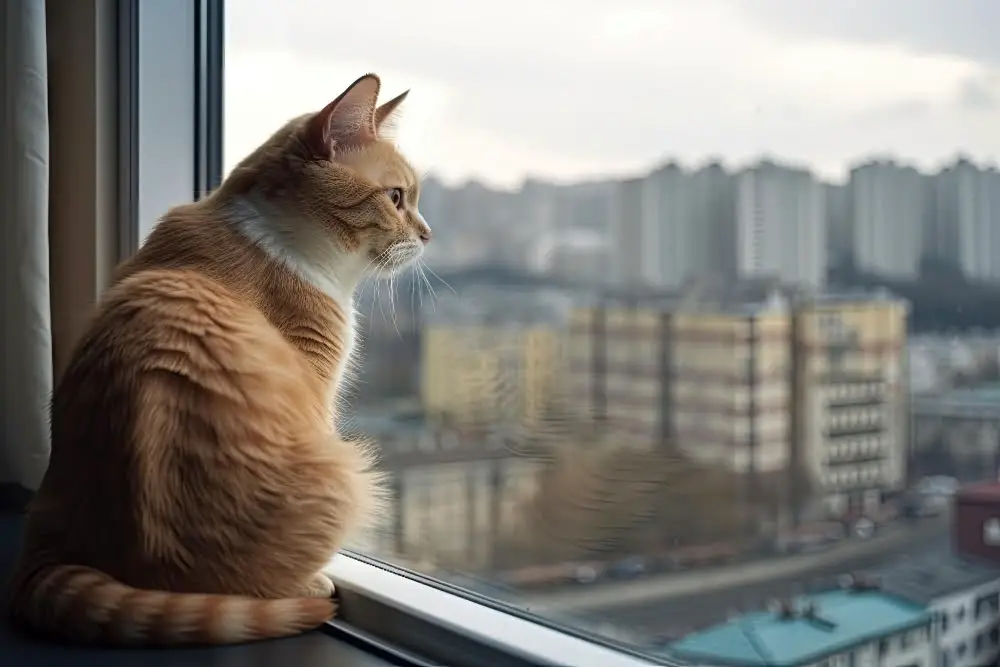
Cats are naturally curious creatures, and their fascination with windows is no exception. They love to observe the world around them, and what better way to do so than through a window? Whether it’s watching birds fly by or keeping an eye on the neighbor’s dog, cats find endless entertainment in gazing out of windows.
Their curiosity is not just limited to outdoor views either. Cats also enjoy observing indoor activities from a distance.
From watching their owners cook in the kitchen to monitoring guests’ movements during social gatherings – they’re always keenly aware of what’s happening around them.
This innate curiosity stems from their hunting instincts as well as territorial behavior. By keeping an eye on everything that moves within its territory (your home), your cat feels more secure and confident about its surroundings.
Natural Instincts and Curiosity
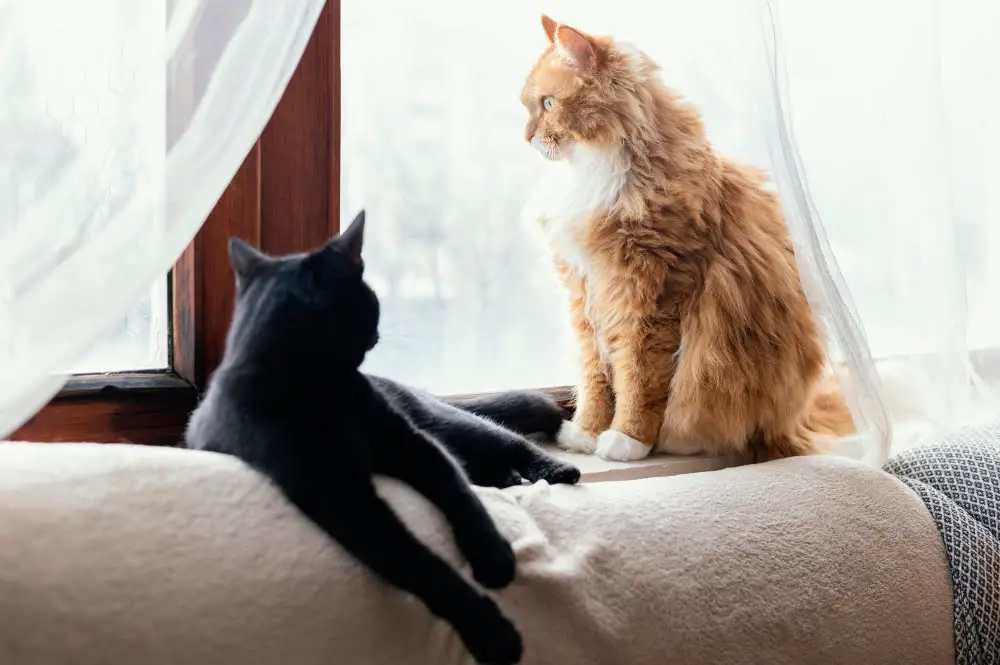
This innate curiosity drives them to investigate the world around them, even if it’s just through a windowpane. By looking out of windows, cats can satisfy their natural instincts without putting themselves in danger.
In the wild, cats spend much of their time hunting prey or patrolling territory boundaries from high vantage points such as trees or rocks. Looking out of windows provides indoor cats with a similar experience by allowing them to observe and monitor what’s happening outside while feeling safe inside.
Moreover, this behavior also helps indoor felines stay mentally stimulated and entertained throughout the day when they’re not able to go outside for physical activity. It gives them something interesting to watch that keeps boredom at bay.
Indoor Vs Outdoor Cats
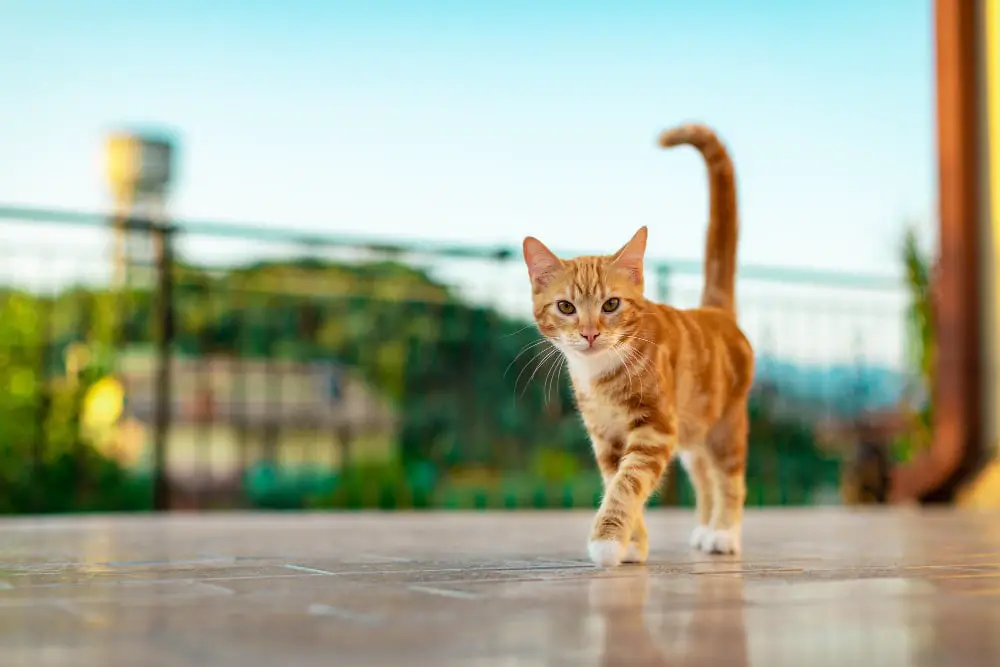
Indoor cats may spend more time gazing out the window because they don’t have access to the outside world, while outdoor cats may be too busy exploring their surroundings to sit still for long periods of time.
However, there are pros and cons to both lifestyles. Outdoor cats get plenty of exercise and mental stimulation from hunting prey, climbing trees or fences, and interacting with other animals in their environment.
But they also face risks such as getting hit by a car or attacked by predators.
On the other hand, indoor-only kitties are safer from these dangers but can become bored without enough environmental enrichment. Window watching provides them with visual stimulation that can help reduce boredom-induced behavior problems like scratching furniture or overeating.
Birds and Wildlife Watching
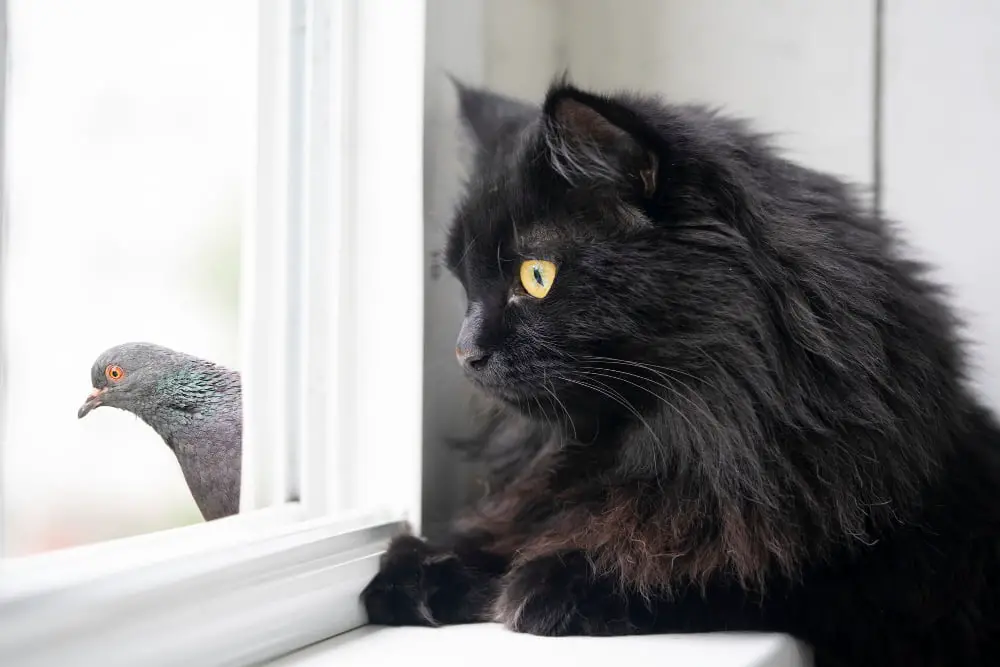
Cats are natural hunters, so it’s no surprise that they’re fascinated by the movements of small animals outside. Even indoor cats who have never hunted before will instinctively be drawn to watching birds fluttering around in trees or squirrels scurrying across branches.
Watching wildlife can provide a great source of entertainment for your cat, especially if you set up bird feeders or squirrel feeders near your window. This way, your feline friend can enjoy hours of fun watching their prey without actually harming them.
However, it’s important to note that while this behavior may seem harmless enough, some outdoor animals may see a cat staring at them through a window as an act of aggression. So if you notice any signs that suggest an animal is feeling threatened by your cat’s presence (such as hissing or growling), it might be best to move them away from the window for everyone’s safety.
Birds and Feeder Activity
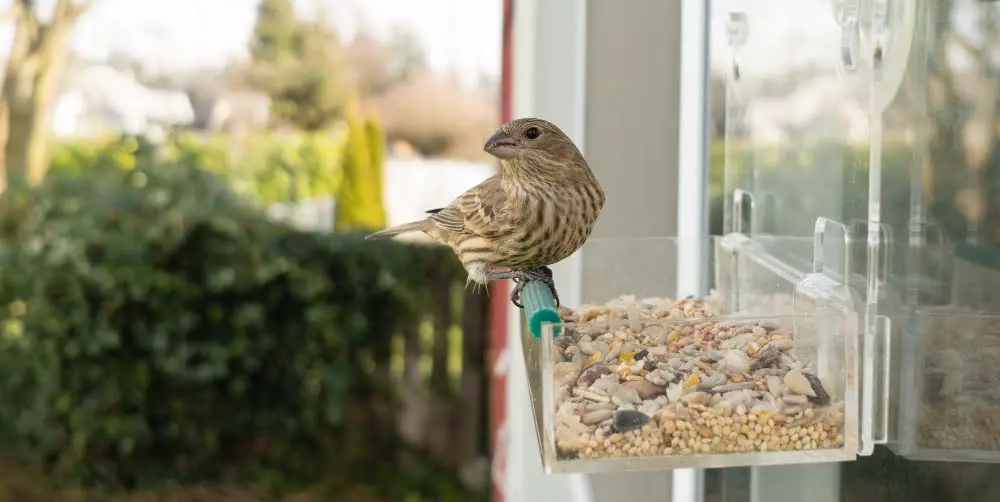
Cats are natural hunters, and watching birds can be a form of entertainment for them. If you have bird feeders in your yard, your cat may spend hours staring at them, waiting for their next meal to arrive.
This behavior is not only entertaining but also provides environmental stimulation that can help reduce boredom in indoor cats.
However, it’s important to note that while this behavior may seem harmless, it could potentially put wildlife at risk if your cat has access to the outdoors or if they’re able to escape through an open window. It’s crucial as pet owners; we take responsibility for our pets’ actions and ensure they don’t harm other animals.
Rodent-Watching
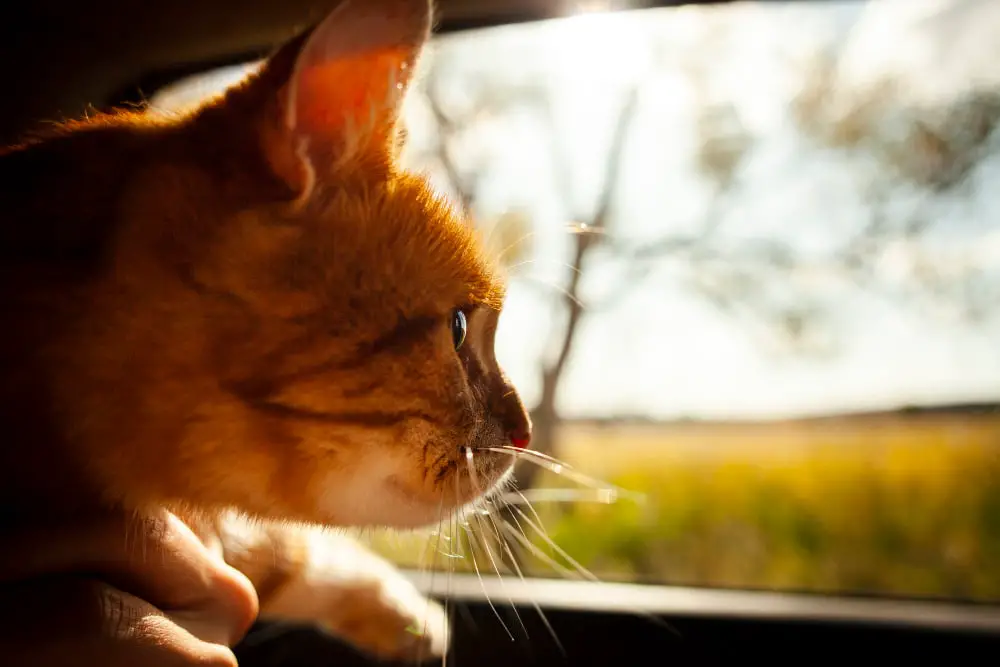
Cats are natural hunters, and rodents like mice and rats are their favorite prey. When your cat sees a rodent scurrying around outside, it triggers their hunting instincts, making them feel alert and focused.
Even if they can’t catch the rodent from inside the house, watching it move around provides mental stimulation for your cat.
This behavior is especially common in indoor cats who don’t have access to outdoor spaces where they can hunt live prey. Watching rodents through windows gives them an opportunity to engage in this instinctual behavior without actually harming any animals or risking injury themselves.
However, as much as we may enjoy seeing our feline friends entertained by these little creatures running about outside our homes; we must be careful not to encourage actual hunting of wildlife that could harm local ecosystems or even pose health risks for both pets and humans alike.
Watching Dogs and Other Animals
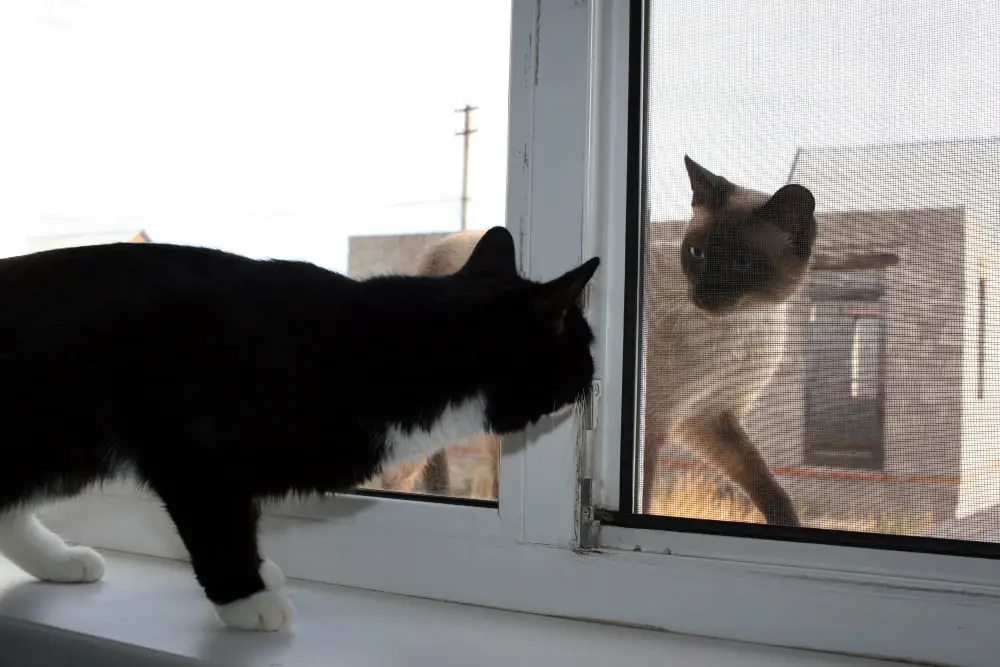
Dogs, in particular, can be a source of fascination for cats. They may spend hours watching dogs play or sleep outside the window.
This behavior is not only entertaining but also serves as a way for cats to learn about their environment and potential threats.
In addition to dogs, cats may also enjoy watching other animals such as squirrels or birds that visit your yard or neighborhood park. Watching these creatures can provide mental stimulation and entertainment for indoor cats who don’t have access to the outdoors.
However, it’s important to note that while cat-watching-dog interactions might seem harmless from afar; they could lead up into dangerous situations if left unsupervised especially when there is no clear indication of how well both pets get along with each other.
Strange People Observations
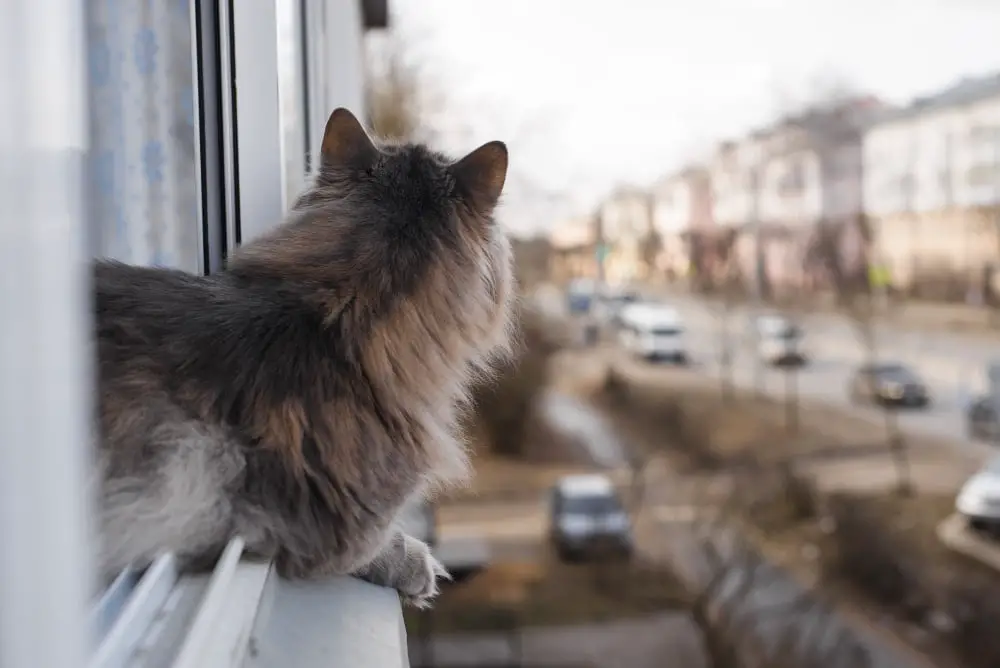
One of the most intriguing things that cats watch from windows is people. Cats love watching strange people walking by, whether it’s a jogger running past or someone walking their dog.
They may even become fixated on certain individuals who pass by regularly.
It’s not entirely clear why cats enjoy watching strangers so much, but it could be due to their hunting instincts or territorial behavior. By keeping an eye on unfamiliar faces passing through their territory, they can stay alert and aware of any potential threats.
However, some experts believe that cat-watching-people behavior might also stem from boredom or lack of stimulation in indoor environments. Watching humans go about daily activities can provide entertainment and mental stimulation for our feline friends.
Territory Surveillance
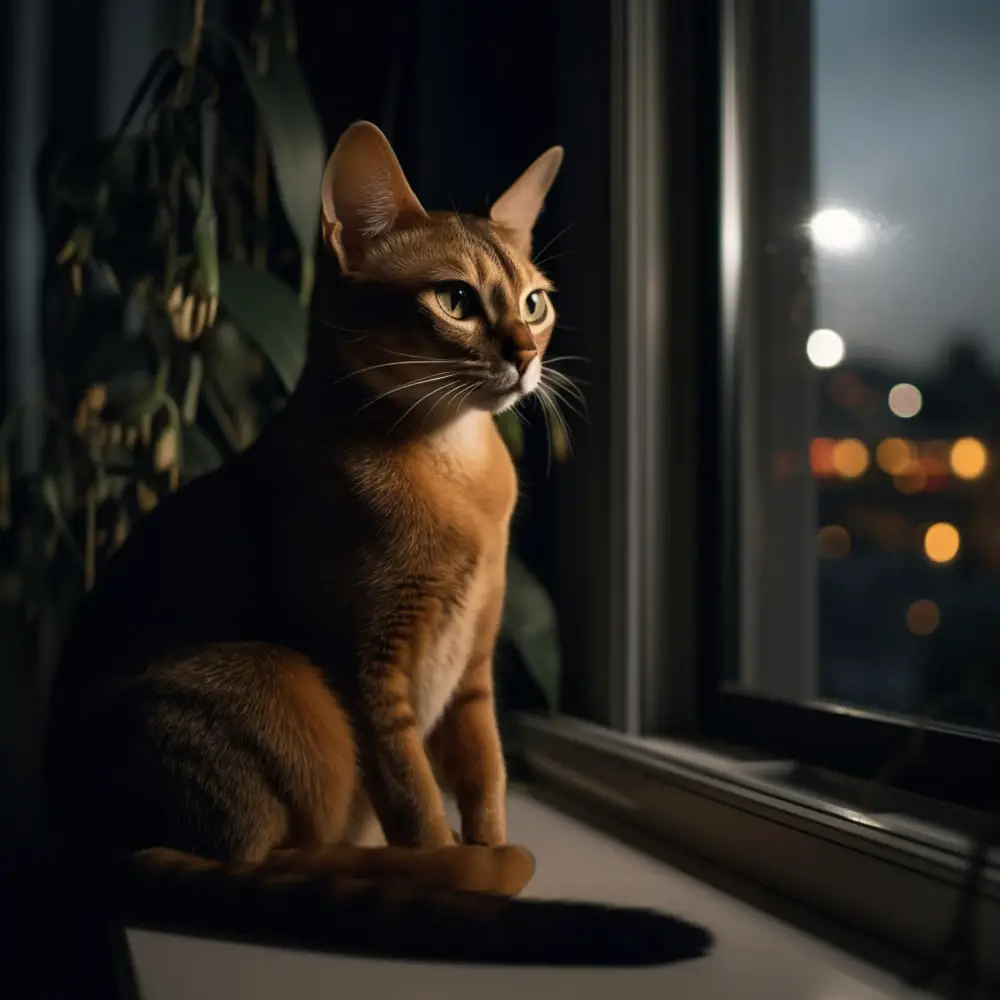
Looking out the window is a way for them to monitor their territory and ensure that everything is in order. They can see who’s coming and going, what other animals are around, and if there are any potential threats nearby.
For indoor cats especially, looking out the window provides a sense of security as it allows them to observe without being observed themselves. This behavior also helps reduce stress levels by giving cats control over their environment.
If you have multiple cats living together in your home or apartment building with other pets or strays outside – this behavior becomes even more important as it enables your cat(s) to establish boundaries between themselves and others while keeping tabs on any potential intruders.
Surveillance of Their Territory
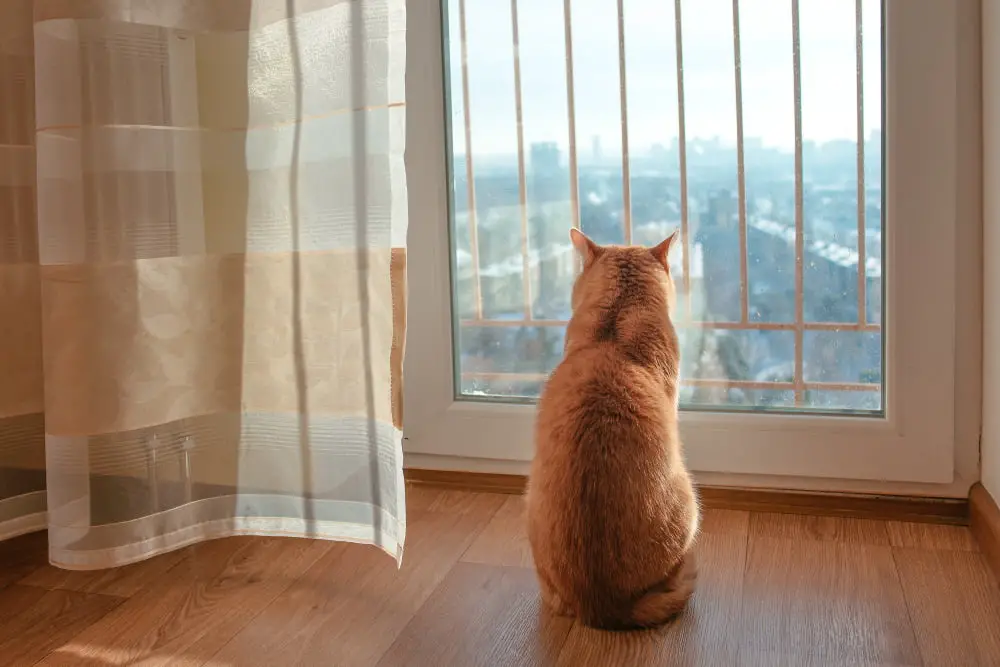
By nature, cats are curious creatures that love to explore and investigate new things in their environment. When your cat is looking out the window, it’s not just a passive activity; it’s an active surveillance mission.
From the safety of indoors, your cat can keep an eye on what’s happening outside without putting themselves in harm’s way. They’re able to monitor any potential threats or intruders that may be lurking around outside while keeping themselves hidden from view.
This behavior is especially common among outdoor cats who have a larger territory to defend. By watching over their surroundings from high vantage points like windowsills or perches near windows, they can stay alert for any signs of danger and quickly react if necessary.
Even indoor cats exhibit this behavior because they still consider your home as part of their territory that needs protection against perceived threats such as other pets or strangers passing by outside.
Natural Light Attraction
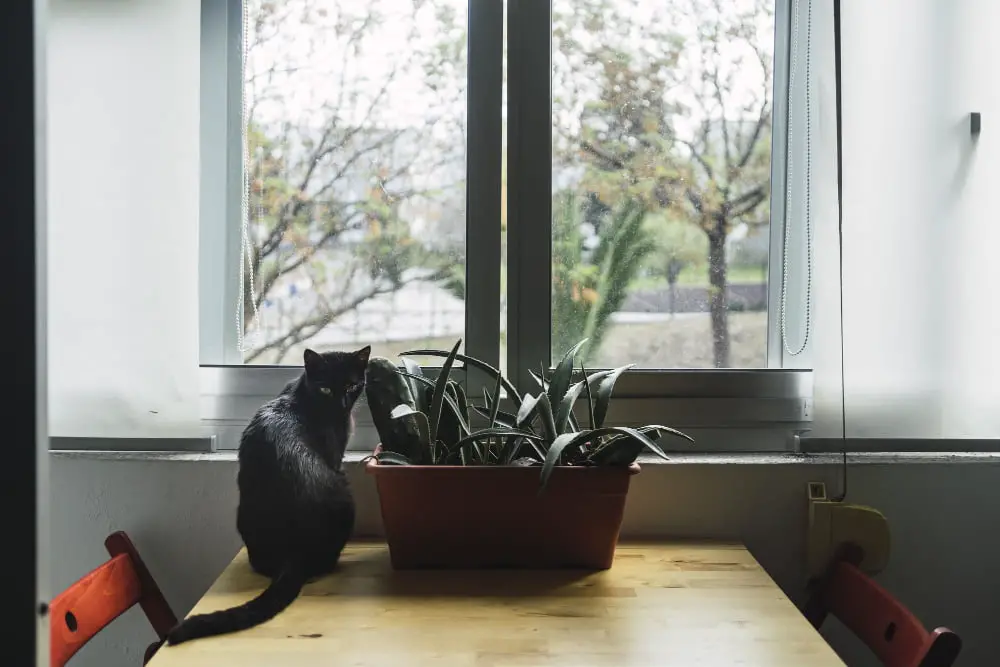
Sunlight is essential for a cat’s health as it provides vitamin D that helps with calcium absorption, which is necessary for strong bones and teeth. Natural light can help regulate a cat’s circadian rhythm or internal clock.
When cats sit by the window soaking up the sun rays, they’re not just enjoying themselves; they’re also getting some much-needed exercise. The warmth of the sun encourages cats to stretch their muscles and move around more than usual.
Basking in Sunlight
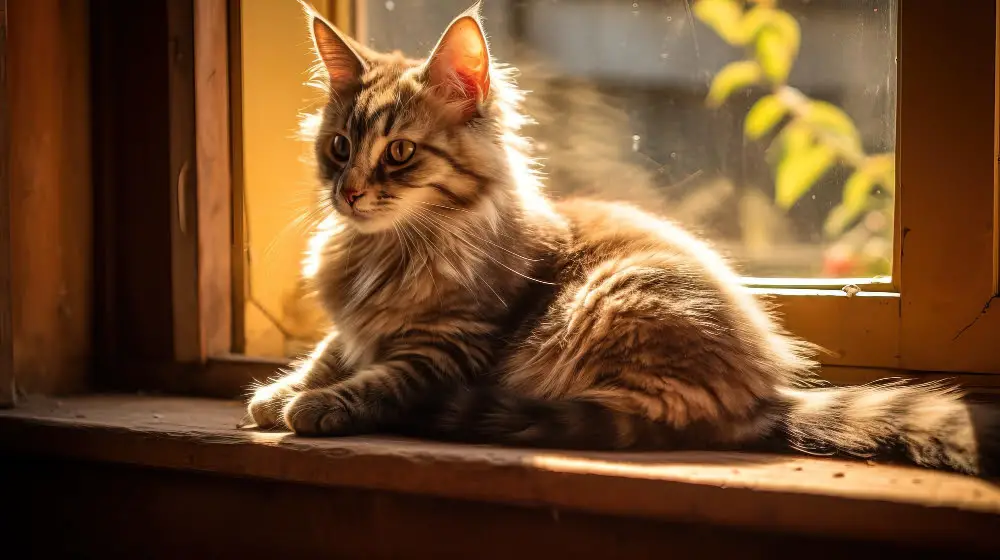
Sunlight is essential for cats as it helps regulate their body temperature, promotes healthy fur growth, and provides vitamin D that they need to maintain strong bones. When your cat sits by the window soaking up the sun’s rays, they’re not just enjoying a warm nap; they’re also taking care of themselves.
As an indoor pet owner who wants to ensure your feline friend gets enough sunlight exposure while staying safe indoors away from predators or traffic accidents outside – you can help by providing access to sunny spots near windows where there’s no risk of falling out or getting hurt. You can also consider investing in special UV lamps designed specifically for pets if natural light isn’t available all year round.
Allowing your cat access to sunny spots near windows is beneficial both physically and mentally as it satisfies their natural instincts while keeping them safe inside.
Seasonal Changes
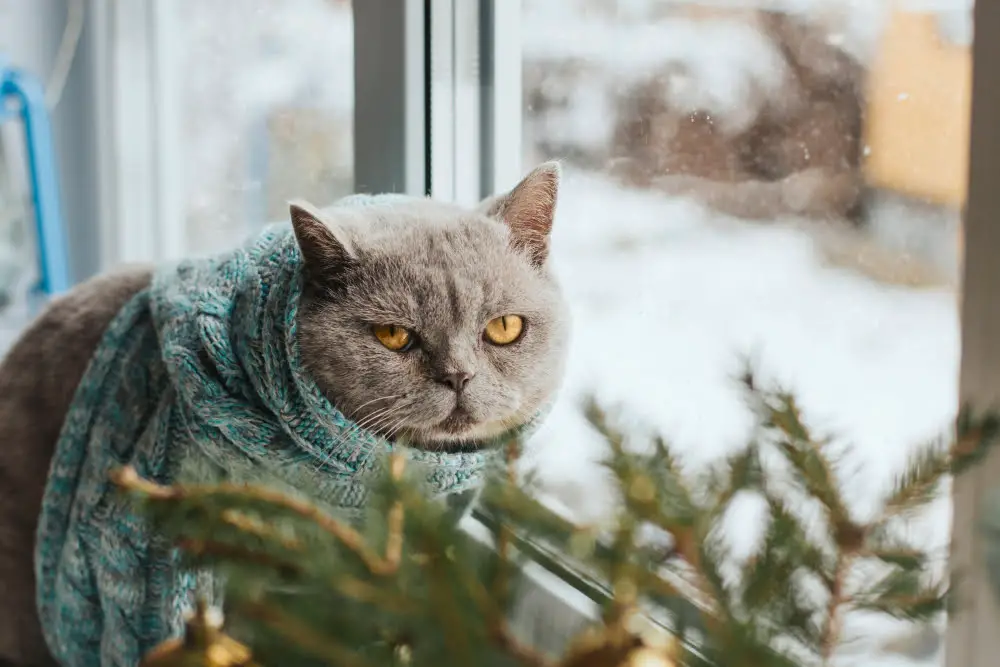
In spring and summer, they may be captivated by birds building nests or fluttering around feeders. In fall, they might watch leaves falling from trees or squirrels gathering nuts for winter.
And in winter, cats can spend hours watching snowflakes drift down to the ground.
The changing scenery outside can provide a source of entertainment and stimulation for indoor cats who may not have access to outdoor environments year-round. It also helps them maintain their natural instincts as hunters and explorers.
However, it’s important to note that while seasonal changes can be exciting for your feline friend to observe through windows safely indoors; extreme weather conditions such as thunderstorms or blizzards could cause anxiety in some pets. If you notice signs of stress like pacing back-and-forth near windows during storms or hiding under furniture when there is heavy rain outside – consider providing a safe space away from windows where your cat feels secure until the storm passes over.
Environmental Stimulation
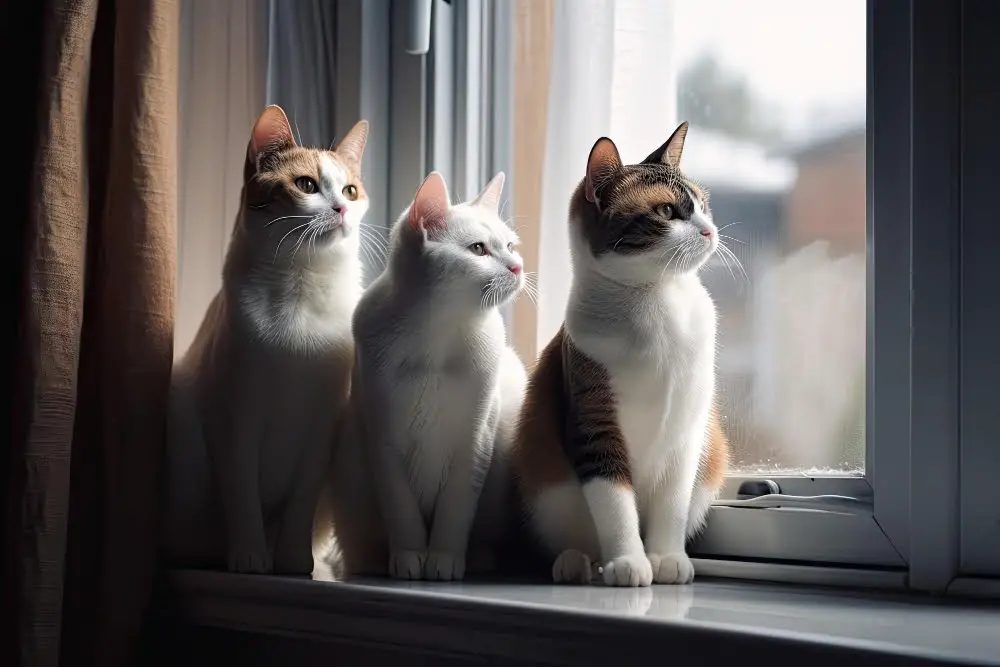
They love to explore and observe their surroundings, which is why they find windows so fascinating. Looking out the window provides them with a constant source of entertainment and mental stimulation.
For indoor cats, windows offer a glimpse into the outside world that they would otherwise miss out on. Watching birds fly by or squirrels scurrying up trees can be incredibly entertaining for your feline friend.
It’s like having their own personal TV show!
In addition to providing visual stimulation, windows also allow cats to experience different sounds and smells from the outdoors. The rustling of leaves in the wind or chirping birds can pique your cat’s interest and keep them engaged for hours.
Looking out the window is an excellent way for cats to stay mentally stimulated while indoors.
Stimulation and Entertainment
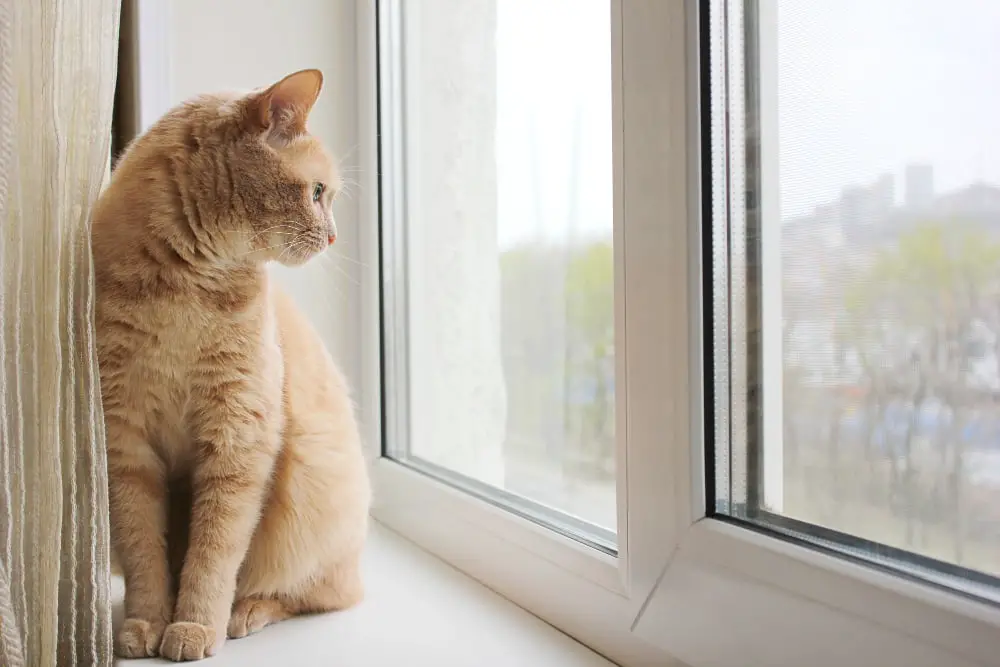
Even though they may not be able to catch anything while sitting on the windowsill, watching birds or squirrels outside can provide a great source of stimulation and entertainment for your cat. This is especially true for indoor cats who don’t have access to the outdoors as much as outdoor cats do.
Watching wildlife through a window can help satisfy your cat’s hunting instincts without putting any animals in danger. It also provides mental stimulation that helps keep them engaged and entertained throughout the day.
Having something interesting to watch outside can reduce boredom-related behaviors such as scratching furniture or excessive meowing. By providing an entertaining view from their favorite perch by the window, you’re giving your feline friend an outlet for their energy that doesn’t involve destructive behavior.
Reducing Boredom
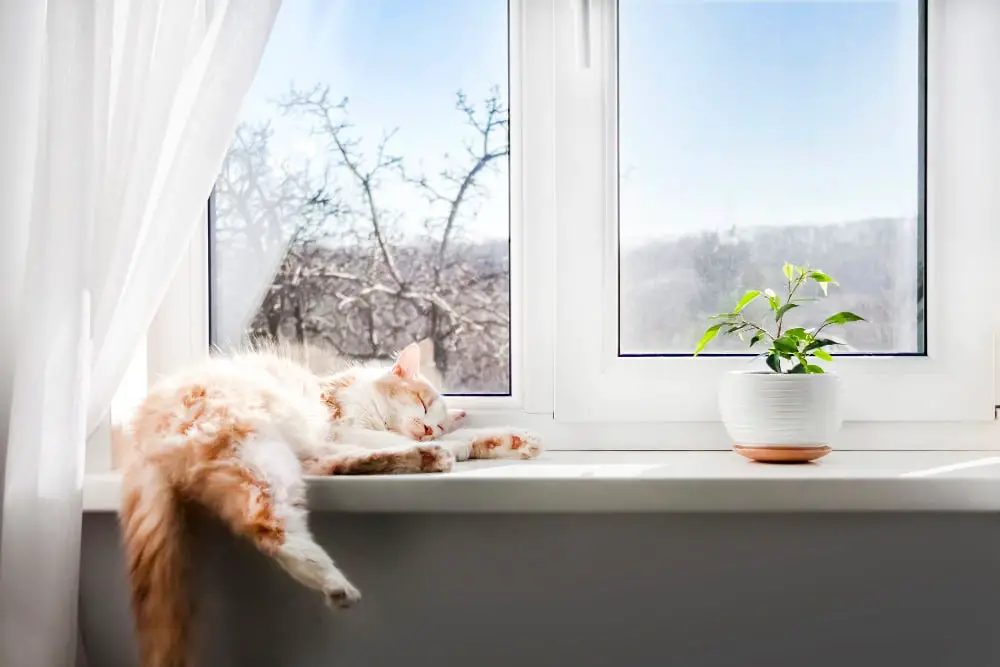
Boredom can lead to destructive behavior, anxiety, and even depression in cats. Looking out the window is a great way for indoor cats to reduce boredom by providing them with environmental stimulation.
Watching birds or other wildlife outside can be an exciting experience for your cat as it triggers their natural hunting instincts. Even if they never catch anything, just watching the prey move around outside provides entertainment that keeps them engaged.
If you want to take things up a notch, consider setting up bird feeders or squirrel feeders near your windows so your cat has something more interesting than just leaves blowing in the wind to watch.
Changing up what’s visible from different windows throughout the day will keep things fresh and new for your feline friend. This could mean moving furniture around or simply opening blinds at different times of day so they have something new to look at each time they approach their favorite window perch.
Hunting Instincts
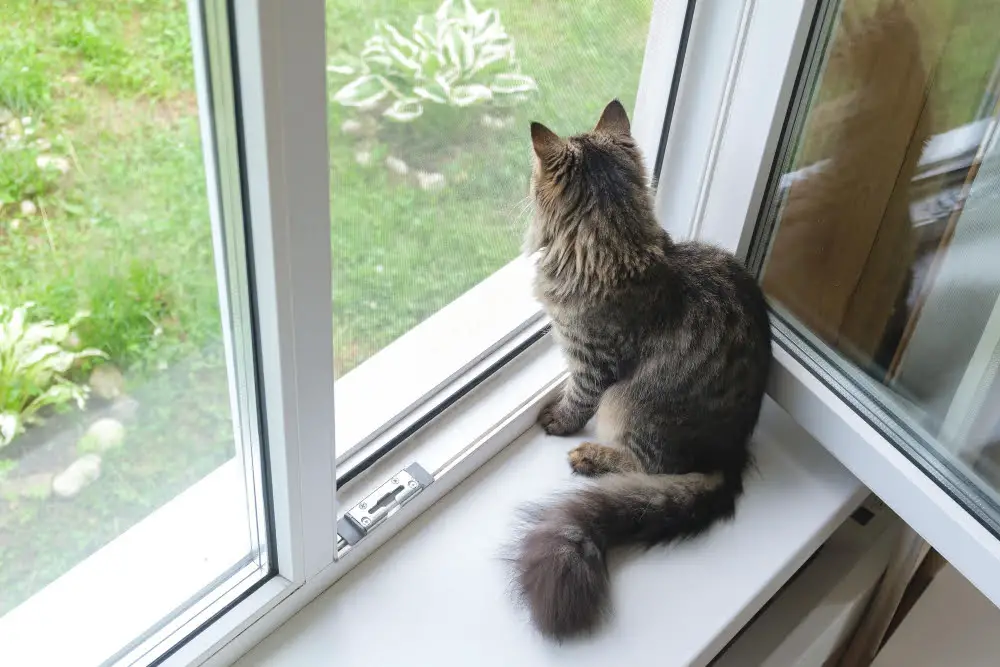
Even if they’re well-fed house cats, the hunting instinct is still very much alive in them. When your cat sits by the window watching birds or squirrels outside, it’s not just for entertainment – they’re honing their hunting skills.
Watching potential prey from a distance allows cats to study their movements and behavior patterns. This helps them develop strategies for catching prey when given the opportunity.
For indoor cats who don’t have access to live prey, watching birds or other animals through a window can provide mental stimulation that satisfies some of these instincts.
However, it’s important to note that while this behavior may seem harmless enough at first glance; there are risks involved with allowing your cat too close to wild animals outside such as ticks or fleas which could be brought into your home after contact with wildlife.
Socialization Opportunities
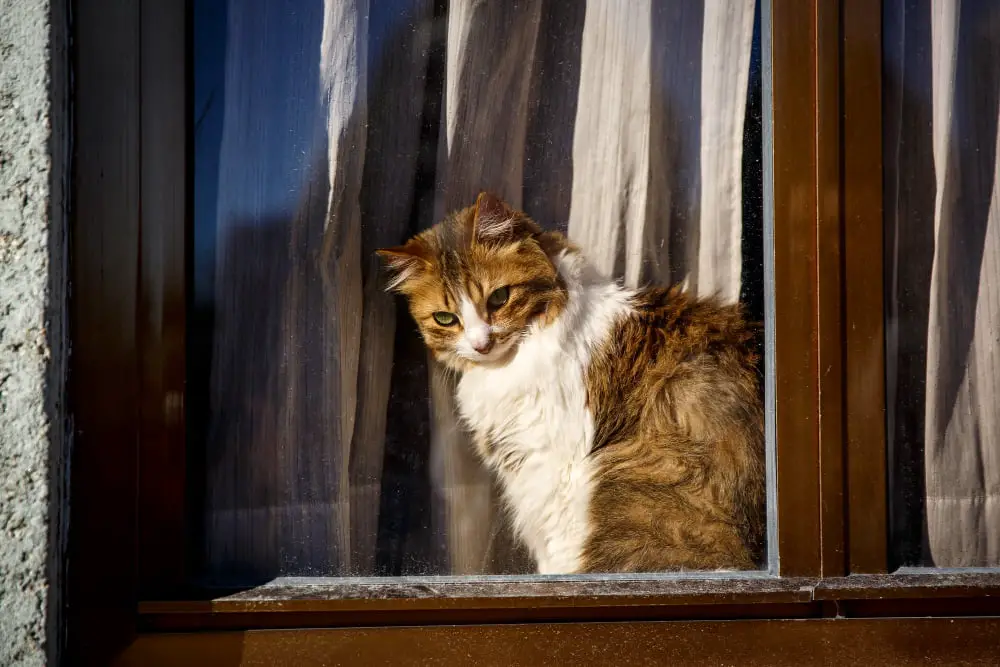
Window watching provides an opportunity for cats to observe the world around them and satisfy their need for socialization. They can watch other animals, people passing by or even interact with birds at a feeder outside the window.
For indoor cats who don’t have access to outdoor spaces, window watching is a way of connecting with the outside world without actually being in it. It’s also an excellent way of providing environmental enrichment that helps reduce boredom and stress levels.
In addition to satisfying their curiosity about what’s happening outdoors, window watching can help improve your cat’s mood by giving them something interesting to focus on throughout the day. By setting up comfortable perches near windows or installing bird feeders within view of windows you’re creating opportunities for your cat not only be entertained but also stimulated mentally which is essential for their overall well-being.
The Vertical Advantage
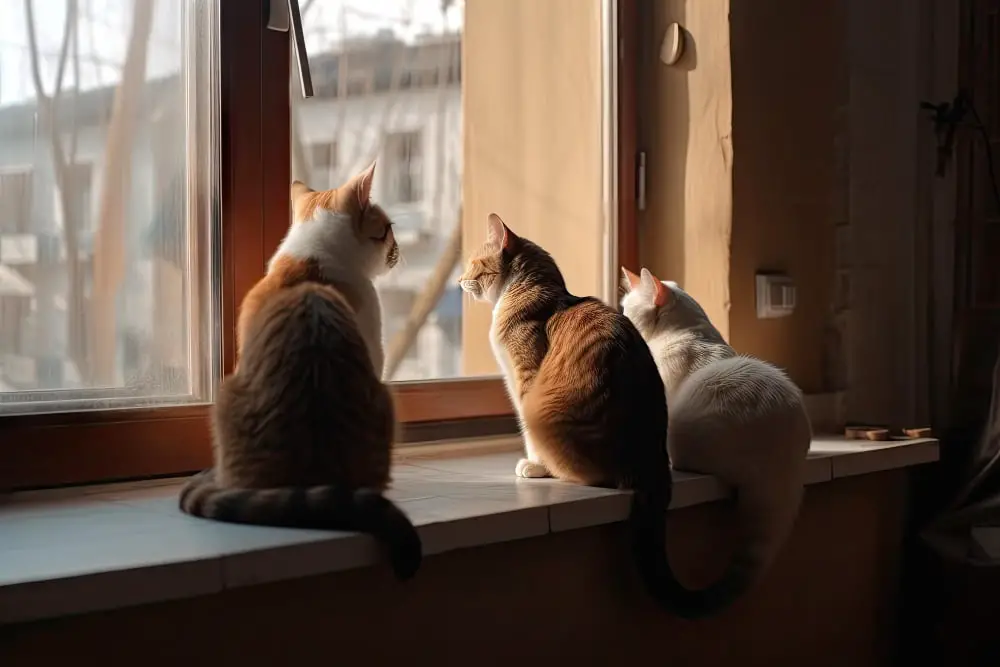
This is why they often climb on top of furniture, shelves, or even your shoulders! Looking out the window gives them a chance to indulge in this instinctual behavior while also providing an elevated view of their territory. From up high, cats can observe everything that’s going on around them without being seen themselves – it’s like having a front-row seat to all the action! being up high makes cats feel safe and secure as they can easily escape any perceived danger by jumping down or climbing further up.
So next time you catch your cat perched atop a windowsill gazing outside with intense focus, remember that it’s not just about what they see but also about where they’re seeing it from – the vertical advantage plays an important role in satisfying their innate curiosity and need for security.
Tall Spaces Attraction
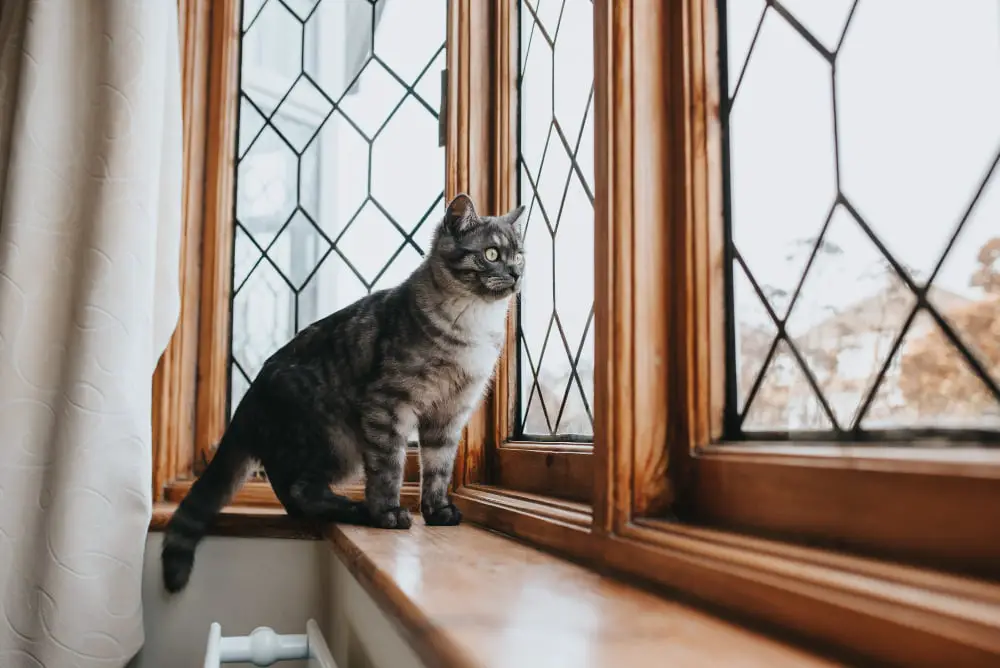
This is why they are often found perched on top of bookshelves, cabinets, or even the refrigerator. The attraction to tall spaces also extends to windowsills and ledges that provide an elevated view of the outside world.
For indoor cats especially, having access to high places near windows can be beneficial for their mental health as it provides them with environmental stimulation and entertainment. It allows them to observe birds flying by or squirrels running up trees which can help reduce boredom.
Being able to survey their territory from above gives cats a sense of security as they feel in control of their environment. This behavior is rooted in instinctual survival tactics where being able to see potential predators approaching from afar was crucial for survival.
Providing your cat with access points such as cat trees or window perches not only satisfies this natural instinct but also helps keep them mentally stimulated while indoors all day long. So if you’re looking for ways on how you can improve your feline friend’s well-being at home – consider investing in some vertical space!
FAQ
What do cats see when they look out the window?
When cats look out the window, they primarily see birds, small wildlife, foliage, other cats, people, vehicles, and insects.
Why does my cat look out the window and meow?
Your cat looks out the window and meows because it may want to be let in or out, as meowing is its primary way to communicate its desires.
Why do cats look outside at night?
Cats look outside at night because their instinctive hunting nature is most active during dark hours, especially at dawn and dusk.
Why do cats look you in the eye?
Cats look you in the eye as a form of communication, expressing hunger, affection, curiosity, territorial behavior, or illness.
What factors make a window spot appealing to a cat?
A window spot is appealing to a cat due to factors such as access to sunlight, a clear view of the outdoors, and potential for bird-watching or other stimulating activities.
How can you create an engaging window space for your cat?
To create an engaging window space for your cat, provide a comfortable perch near the window, with access to natural light and views of outdoor sights, such as birds or other wildlife.
Are there any safety concerns when allowing cats to observe outdoors through windows?
There may be safety concerns when allowing cats to observe outdoors through windows, as they can potentially explore the window and either fall or escape.
Recap
